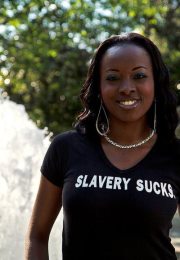
Looking back at the 18 months of my victimization by a “guerilla pimp” (most abusive type of pimp), I have to make an honest decision in regard to my actions. While under the direction of the pimp, I did commit punishable offenses under the law and was charged with conspiracy to commit the Mann Act—driving minors across state lines for illegal purposes. I honestly do not believe that I was a perpetrator of this crime because I was forced to drive the car, just as I was forced to submit to prostitution and the humiliation of being sold for sex, over and over. Congress stated in the federal Trafficking Victims Protection Act (TVPA) of 2000, and I believe, that I should not be held responsible for the crimes I was forced to commit while I was enslaved.
In my case, I believe two key circumstances state the case for my innocence:
A victim does not become the “bottom girl” overnight. It is important to recognize that a “bottom girl” has been deeply manipulated and has likely developed a trauma bond with her pimp. Her basic ability to determine right from wrong has become corrupted by thoughts and actions instilled by her pimp through fear. The “bottom girl” develops compliant behavior after constant threats and real severe beatings and rapes, and witnessing the cruelty done to other girls.
From the very first beating when I was choked to the point of unconsciousness until the day he pulled the trigger on the miraculously unloaded gun in my mouth, I knew obedience meant survival. When he placed the gun in my mouth and asked me if I wanted to die, I shrugged. I thought, “Finally, this pain and this life would be over and the only one hurt is the one who was responsible for me being in the situation – ME!” The trigger was pulled but I was still alive. For a few moments, I thought I was experiencing death with the ability to still see life, until I felt the blows to my head by the gun. This was when I realized there was no hope. I had to continue this life of being obedient to him so my family wouldn’t get hurt, as he reminded me each day. I was alive, but was not living. I was a slave.
Congress expressed its understanding of this victim behavior in the federal TVPA: “Victims of severe forms of trafficking should not be inappropriately incarcerated, fined, or otherwise penalized solely for unlawful acts committed as a direct result of being trafficked…” Nonetheless, victims are still being charged.
Today in America, the justice system faces a severe challenge. Does it respond to the victimization of the bottom girl by offering services and freedom? Or does it consider the bottom girl a perpetrator and respond with jail sentences and correctional programs?
It is a difficult question and the answer is likely unsatisfying: every case is different and should be investigated independently so as to bring justice in the greatest way possible.

My experience revealed the importance of awareness at all levels. Judges, prosecutors and defense attorneys need to be adequately trained on the issue of sex trafficking to be able to evaluate each case and to fully understand the circumstances under which the crimes were committed. One promising practice is found in the state of Georgia where an expert witness panel was formed to provide informed testimony for the court, improving the likelihood of better outcomes for those “bottom girls” who are charged with conspiring, aiding or committing human trafficking as a result of trying to survive their enslavement, like I was.
As one who has experienced the consequences of this dilemma, it is especially difficult to say that there are circumstances in which the “bottom girl” may actually have stepped over the slippery line of victimization into the role of offender. In any case, age should never be a determining factor in the decision to charge a victim. The simple argument that a victim over the age of 18 should know better does not realistically consider the very real duress experienced by the trafficking victim. But how do we determine when the “bottom girl” is acquitted or convicted? What could I have said in my defense that would have changed the outcome of my conviction? What will we hear in the story of a “bottom girl?”
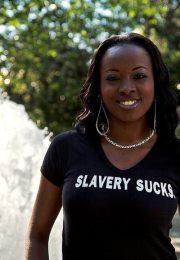
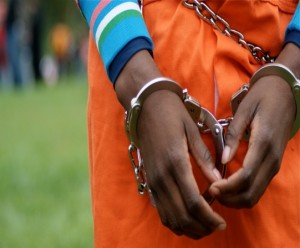 This is where things get complicated. When law enforcement becomes involved, a bottom girl will initially defend her pimp as she mistakes his abuse as an act of kindness. She defends the pimp’s act of rape, severe beatings, and verbal abuse by blaming herself. She often feels that she deserved what was done to her.
This is where things get complicated. When law enforcement becomes involved, a bottom girl will initially defend her pimp as she mistakes his abuse as an act of kindness. She defends the pimp’s act of rape, severe beatings, and verbal abuse by blaming herself. She often feels that she deserved what was done to her. By Anne Reilly
By Anne Reilly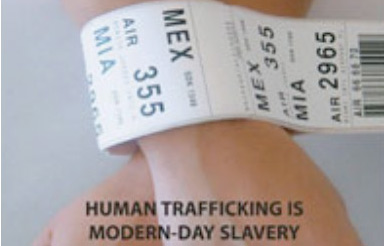 Though the TVPA provides a strong legal platform, many states are lacking laws on the issue. Shared Hope spearheaded the effort to make sex trafficking a priority issue in states by creating the
Though the TVPA provides a strong legal platform, many states are lacking laws on the issue. Shared Hope spearheaded the effort to make sex trafficking a priority issue in states by creating the 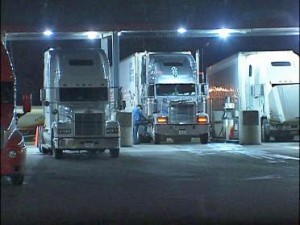 Operation Precious Cargo
Operation Precious Cargo





